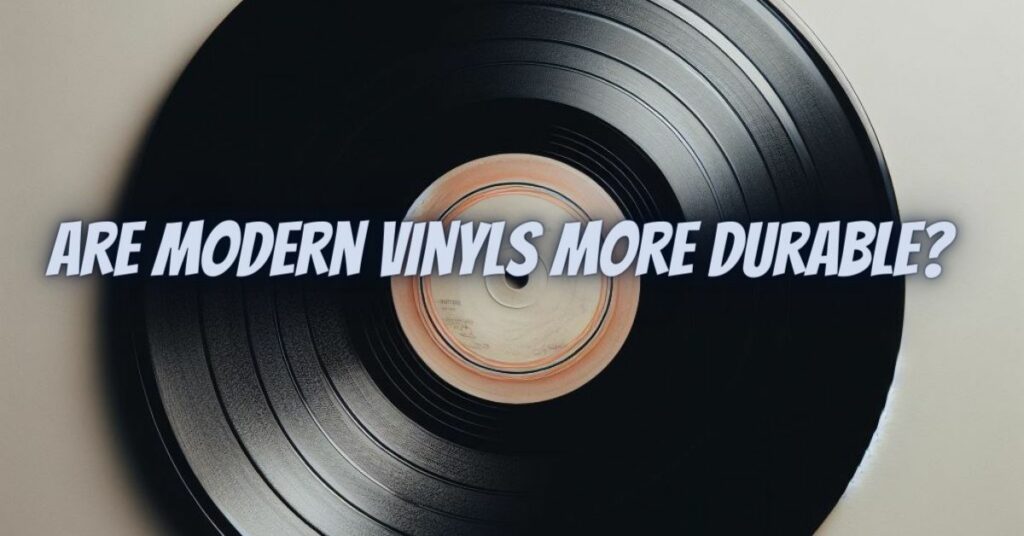In the world of music enthusiasts and vinyl collectors, vinyl records have long been cherished for their analog warmth and nostalgic appeal. Over the years, vinyl records have seen a resurgence in popularity, with modern pressings becoming widely available. One question that often arises in this vinyl revival is whether modern vinyl records are more durable than their vintage counterparts. In this article, we will explore the factors influencing the durability of vinyl records, both old and new.
The Vinyl Revival
Vinyl records, once thought to be obsolete in the digital age, have experienced a remarkable resurgence. Audiophiles and collectors alike have rekindled their love for vinyl, drawn to the tactile nature of records and the rich, warm sound they deliver. As a result, vinyl production has surged, and modern vinyl records are being pressed in larger quantities. But, are these modern pressings more durable than the vinyl records of yesteryears?
Factors Affecting Vinyl Durability
- Material Quality: One significant factor in the durability of vinyl records is the quality of the vinyl material itself. Modern vinyl records are often made from high-quality materials that can resist wear and tear more effectively than older, lower-grade vinyl.
- Pressing Techniques: Advances in vinyl pressing technology have improved the consistency and precision of modern records. Contemporary presses are often better at producing records with fewer surface imperfections, making them more durable.
- Storage and Handling: Regardless of the era in which they were pressed, vinyl records require proper storage and handling to maintain their longevity. Exposure to extreme temperatures, humidity, and careless handling can degrade the condition of any record, old or new.
- Groove Depth and Width: The depth and width of the grooves on a vinyl record affect its durability. Modern records often have grooves that are cut to optimal specifications, resulting in improved tracking and reduced wear on both the record and the stylus.
- Quality Control: Modern vinyl production often benefits from rigorous quality control measures. Records are inspected more thoroughly, reducing the likelihood of defects that can affect durability.
- Mastering and Cutting Techniques: The quality of the mastering and cutting process can significantly impact the durability of a vinyl record. Well-mastered and cut records are less likely to suffer from issues like inner groove distortion or excessive surface noise.
- Handling During Shipping: Modern vinyl records may undergo more careful handling during shipping, reducing the chances of damage in transit.
The Vintage vs. Modern Vinyl Debate
While there are several factors that can contribute to the durability of modern vinyl records, it’s important to remember that well-preserved vintage vinyl records can also remain in excellent condition for decades. Many collectors own vintage records that have stood the test of time.
However, it’s undeniable that advancements in material quality, pressing techniques, and quality control have improved the overall durability of modern vinyl records. This means that, on average, modern vinyl records may be more resilient to wear and tear compared to older pressings.
The question of whether modern vinyl records are more durable than vintage ones comes down to a combination of factors. Modern vinyl records benefit from improved materials, pressing techniques, and quality control measures. Still, the durability of any vinyl record, whether old or new, ultimately depends on how it is handled, stored, and maintained.
Collectors and enthusiasts who appreciate the unique qualities of vinyl records can rest assured that modern pressings are generally built to last. With proper care and handling, vinyl records, both vintage and modern, can continue to provide countless hours of musical enjoyment for years to come, contributing to the enduring appeal of this analog medium in the digital age.


